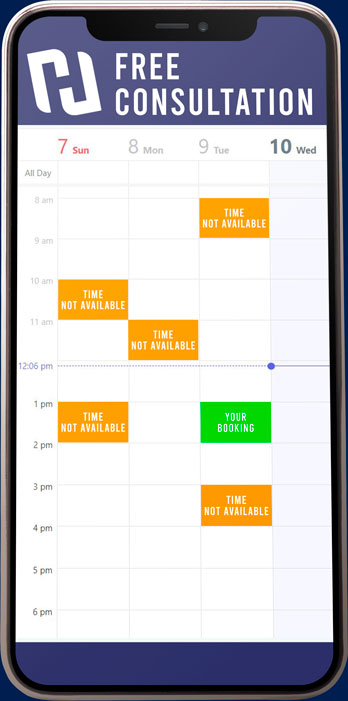With mental health awareness on the rise, many people are speaking up about the stressors in their lives that affect their wellbeing. Unsurprisingly, work has a tremendous influence on the mental health of employees, business owners, and entrepreneurs, especially regarding burnout and overtime. With mental health becoming a more prominent topic, people are working on learning more about it.
There are a few simple things to keep in mind when introducing mental health ideas into the workplace. What’s most important to remember is that a safe and healthy environment benefits everyone. Having a concrete and genuine approach to mental health is great for employees while simultaneously improving productivity and business standing.
There are various reputable sources to learn more about mental health and mental illness, including Beyond Blue, the Black Dog Institute, and R U OK. It’s also possible to outsource and systemise the introduction of mental health awareness in the workplace to specialists. It’s always best to be prepared. The statistics show that mental illness can affect anyone at any time, and the facts don’t lie.
Over the last few years, statistics regarding mental health and illness in the workplace have been steadily released, displaying how employers and employees feel in their current environment. The numbers are worrying, with one in five employees having to take time off work due to mental illness, and many feeling that their health is unsupported. In addition, 58% of business leaders surveyed say their position in the company makes it difficult to talk about mental health, which opens them up to mental illnesses like depression and anxiety.
Small business owners are hit extremely hard, with one-third reporting high levels of psychological distress. Long hours, customer demands, income, and frequent overtime are all things that dramatically increase the likelihood of small business owners developing serious mental illnesses.
Entrepreneurs are another group of workers that suffer severe mental health issues. 72% of them experience severe burnout, chronic fatigue, anxiety, insomnia, and depression due to the demands of their jobs. Yet, despite such damning statistics, entrepreneurs struggle the most to talk about mental health. No doubt this contributes directly to the high level of mental illnesses amongst them. One way for entrepreneurs to get back on their feet is by outsourcing more of their work, but many are reluctant to do so.
These are specific examples that show how pervasive mental illnesses can be, and that it affects leaders and owners and thinkers alike; however, everyone in the workforce is just as susceptible. One in five adults experience mental illness, and more than half go untreated their whole lives. Combatting real mental health problems in the workplace, like burnout, requires a proper awareness plan.

Burnout is one of the most common mental health issues weathered by employees and employers alike, especially in Australia. Australia has one of the highest burnout rates worldwide, with four out of five people suffering from it in the last year alone. We worked nearly twice at many extra hours than normal, logging an insane amount of unpaid overtime.
However, it’s not just the overworking that has caused such devastating levels of burnout. There are causal factors that, when all put together, snowball into a profound issue in the workforce. Commute time, external responsibilities, the work environment itself, how much one is appreciated, and overall satisfaction with the job all contribute to the level of burnout someone has.
Because there are so many different ways to experience burnout, there’s no blanket fix-it. Self-care helps slow the descent, but it does not get to the root of whatever issue is causing the spiral. Don’t stop practising self-care, it’s an integral part of battling burnout, but it cannot be the only thing you do.
Some signs that you’re speeding towards burnout are turning to alcohol to relax, daytime fatigue, consistent aching, feeling depressed, and ignoring non-work related things. If it’s possible to take a break or a short holiday, that’s the most rejuvenating way to fight burnout. Taking a step back from everything has terrific positive effects, too. If you cannot, consider taking up mindfulness exercises and arranging to see a therapist. Talking things out will release tension, as will a professional massage or more time with your loved ones. Spend some more time with your happiness influences. In general, prioritising things beyond work, especially cutting back on unpaid overtime, will allow enough space and time to recover.
Overtime has become a substantial part of corporate and company culture. The rise-and-grind mindset of today influences workers to come in earlier and stay later – for no extra pay.
Technology has made this even easier to do, with employees logging back into work after leaving and putting even more hours into projects. Management often expects many full-time workers to access their work remotely and continue well into the night. In other cases, some people are simply married to their job, doing extra unpaid hours without prompting. Over one-third of Australians regularly do overtime, especially those who work from home and in digital teams. As a result, Australia is the second most workaholic country globally, beaten only by Japan.
The consequences for consistently doing overtime are immense. Fatigue is the worst, leading to extreme mental health issues that also damage one’s physical wellbeing. It causes insomnia, paranoia, depression, and anxiety, while simultaneously affecting muscle, brain, and bone growth.
Overworking also leaves you with less time to do things you enjoy. Exercising, resting, preparing good meals, and other activities necessary to lead a healthy life get pushed to the wayside, which is incredibly damaging both physically and mentally. Sleep is often the first necessity sacrificed in favour of work. It’s an underrated priority, and fighting against it causes adrenal fatigue and burnout.
It’s much better and safer, in the long run, to pay attention to your mental health and look after yourself in the workplace.








